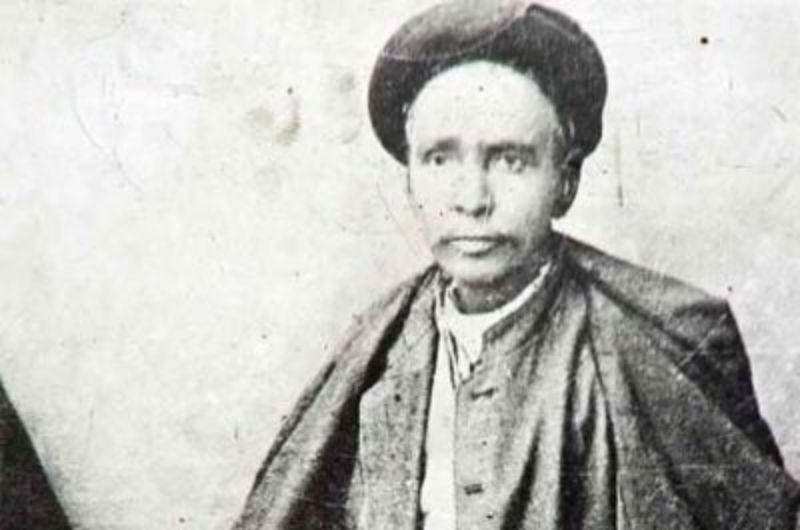Bharat Dogra tells us the story about an intrepid activist who stood out as a fiery journalist too. We in India need to do much more to preserve the memory of Sufi Amba Prasad, he says
Sufi Amba Prasad was not only a freedom fighter, but one who stood apart even in this select group – he challenged the biggest imperial power in the world in not one but two countries, India and Iran, and finally died fighting for this cause in Shiraj (Iran). A great champion of Hindu-Muslim unity, he was ahead of his times in visualising the unity of several countries for defeating imperialist powers. In the course of Prasad’s eventful life, he displayed great courage time and again. And it is all the more amazing that he could lead such a life because he was born without his right hand. He fought for the freedom of two countries using only one hand!
Sufi Amba Prasad become very popular among freedom fighters at a very young age in India, and became similarly popular very quickly in Iran, despite it being a new country for him where he had to start from scratch. In fact, he is perhaps better remembered now in Iran, where he died fighting colonial powers at the age of 59 in 1917. He deserves to be known much more widely in India.
Amba Prasad was born in Moradabad (India) in 1858, just a little after the 1857 uprising against British rule. He used to joke that he must have been a fighter in that uprising, and lost his right hand but was so eager to return to continue the struggle that he was reborn before God had time to mend his hand. He was initially drawn towards legal studies and became quite learned in the subject, but he found his true calling in journalism where he became known for his fiery writing against any kind of injustice, particularly the many-sided injustices of colonial rule. As a result, his jail sojourns started at an early age. He was tortured in jail and denied treatment. His property was confiscated.
Despite this, Amba Prasad was associated with several journals as editor and writer. His command over the Urdu language was widely admired. He also emerged as a strong and consistent promoter of Hindu-Muslim unity. The Peshwa newspaper started by him soon became much-sought-after by people attracted to the Freedom Movement. His work gathered strength when he came in contact with Sardar Ajit Singh of Pagri Sambhal Jatta fame. Hs activities became more centred in Punjab. He was a frequent visitor to the joint family home of Ajit Singh who was also the much-loved uncle of Bhagat Singh.
Amba Prasad’s contribution to the Freedom Movement, in bringing out various publications which spread the message, was particularly great. One of his books was banned by the authorities. As both Ajit Singh and Amba Prasad were extremely popular and capable leaders working constantly for the Freedom Movement, they were constantly under threat from the colonial regime. Things became so bad that they decided to leave India and work for the movement from abroad.
They went together to Iran and got involved in nationalist activities there. When Ajit Singh had to leave for Turkey, most of the burden of the work in Iran was shouldered by Amba Prasad at a time when the British were consolidating their hold over that country. Despite several constraints, Amba Prasad tried to help the Freedom Movement in India even when he was in Iran. His efforts to contact Indian soldiers fighting in World War I to spread the message of the freedom movement opened up a path which was later used much more widely and successfully by Subhash Chandra Bose.
The fiery journalist in him could not be suppressed for long either, and despite all the risks of initiating such work in a new place, Sufi Amba Prasad started a newspaper in Iran. Unfortunately, this also made it easier for the British to trace him, leading to a confrontation in Shiraj where Sufi Amba Prasad faced his attackers with a revolver in his only hand. He was finally overpowered and imprisoned. He was given a death sentence but passed away in the jail before the sentence could be executed. A large number of Iranians gathered for his last rites. A memorial in his honour is still visited by people.
July – September 2022



 from Webdoux
from Webdoux